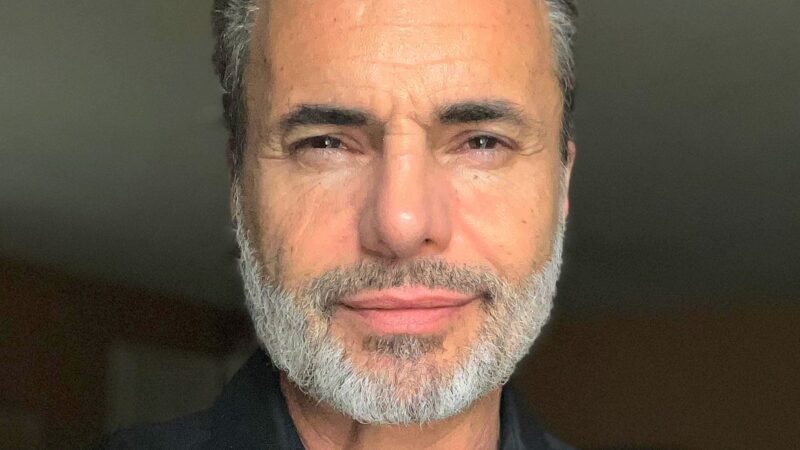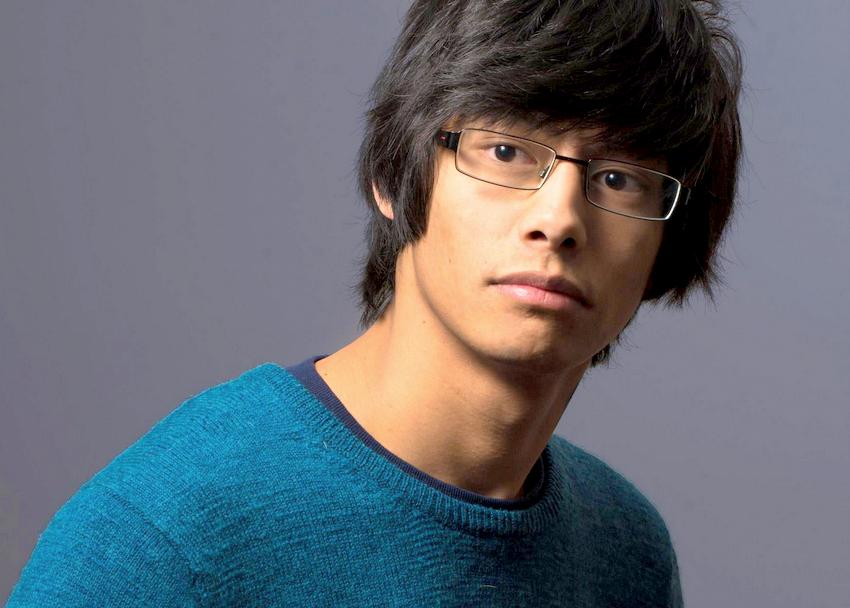
Mark Schoonmaker is a Filipino American producer, writer, and director. He began studying Film and Television screenwriting in high school at the age of 14. Schoonmaker learned how to shoot and edit on actual 16mm film at American University at the age of 17. At AU, Schoonmaker was taught by Jon Adelman, Steve Erdman, and Sarah Menke-Fish. By 19, he made a couple student made short films. His first student made short which was a silent, science fiction mystery drama about two burglars who raid a house for contents, but stumble upon harmful, unknown contents far beyond their understanding.
The second student made short film he made was a supernatural horror thriller which was an homage to Alien (1979) and Thirteen Ghosts (2001). By age 25 he wrote, produced, and directed a couple of professional short films. When he was 23, he wrote his first feature length screenplay titled “Amaranth,” which will be his feature length directorial debut and has been in intensive prep work to have principal photography to commence in late 2017. Schoonmaker’s building his filmography and set out to work with industry professionals as he continues to produce quality content.
Q: How do you describe your work as a director?
Mark Schoonmaker: One of my idols, actor, Billy Crudup once said “Fuckhead in Jesus’ Son (1999) was the first character I portrayed and realized as an actor early on in my career how I want to display myself on-screen in a meaningful way.” That statement really stuck with me. So applying that similar outlook to my job as a director. I want my work to have a lot of meaning with stories that are really worth telling. I am a very ambitious filmmaker where I want to make something different every time and frequently drawn to stories that are personal to me and could connect on an emotional level.
My screenwriting professor, Jonathan Eig in college once told me “When you craft together a story and characters, base it off personal experiences” with the intent to make something quite memorable. Conflicted, damaged, and complicated characters in dramas are what I gravitate towards the most mixed with intimate emotional and heart to heart moments. In some cases in my work I gravitate towards mystery over knowledge. Ultimately I want to give a different perspective with whatever project I produce. And every time I am able to have people watch my work I want them to be a part of the journey and to feel something. When I was in college it was important to me to figure out what to make movies about than to how to make movies.
READ: Up & Coming Filmmaker, Mark Schoonmaker Talks ‘Gridlock’ & Future Projects
Q: How did you get into directing?
Mark Schoonmaker: When I was 7 years old, actor, Leonardo DiCaprio and 1930s horror films got me fascinated with the world of cinema. Growing up in Northern California in the late 1990s, DiCaprio and Spielberg were at the epicenter of stuff I had immense passion for. When I was in elementary school, I would visit the public library in San Jose and watch 1930s horror films on VHS tapes.
I would rent a couple, and return them the next day and rent more. At such a young age, I seriously couldn’t ascertain the full aspects of what went into making a movie. When I was 14, I watched Richard Linklater’s Dazed and Confused (1993), and figured out what I wanted to do for the rest of life. When I became a freshman in high school I began to study. The other films which got me into the cinematic arts at that age were 28 Days Later (2002), and Reservoir Dogs (1992).
Q: How do you choose a project to direct?
Mark Schoonmaker: First and foremost there has to be a great story to tell and really interesting characters to propel it. I’ve got to be emotionally invested with it from the start. Personally for me I’ve got to find reasons why I must tackle a particular project. Because making at least one project is like a marriage you’re going to be stuck with it until it’s complete. I’m in the mind set where to do a romantic comedy or a science fiction film just for the sake of doing it is a profound waste of time. The story has to move me emotionally and really resonate with an audience.
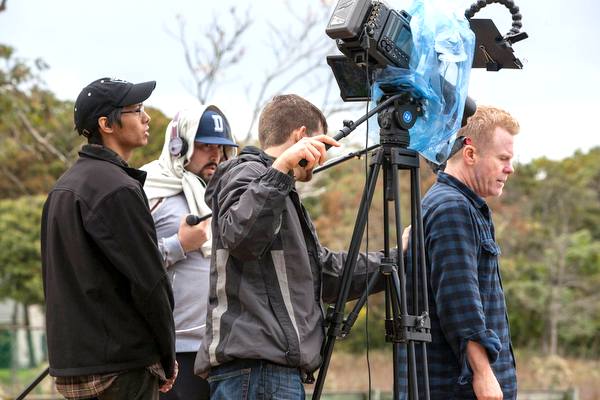
Q: Describe a few wrong impressions actors, writers and directors have about directing?
Mark Schoonmaker: Actors and writers are often interested in all feedback and I always welcome input and new ideas from the actors and writers I am collaborating with at that particular moment. But to me, in the end, the director is the person who has the overall say. The actors are meant to serve the vision. The writers, and producers are there to help fully realize the vision for the director.
Q: Do you take courses to increase your craft?
Mark Schoonmaker: I do not since I’ve been out of college. But what I can say in terms of increasing my craft. When I was in college, I took a screenwriting course, where my professor told me the first assignment was to write a silent treatment with no dialogue, mainly on focusing to convey a certain obstacle a central character must go through and tell through imagery and less dependent on dialogue.
That’s a technique which has become a routine for me whenever I film my projects. In some cases, when I work with the actor to showcase a widespread of emotions, the less you’ve become dependent on dialogue the better. It’s not the most groundbreaking idea but any time I discover a new way for someone to comprehend a character’s action through movement or facial expression of a situation I get intrigued.
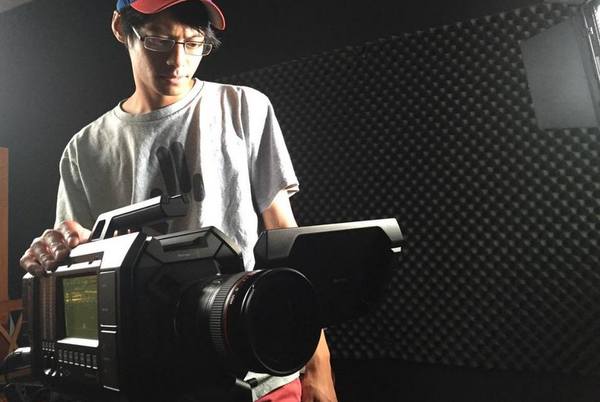
Q: What books do you read?
Mark Schoonmaker: I have to give credit to one of my producing partners, Phillip Michael Ramos, and a very talented actress, Johanna Watts (Career Girl) who has both suggested I read “Directing Actors” by Judith Weston. Extremely insightful piece of material in learning how to deal and collaborate with actors on set and prepping for a shoot. And also to get in the mindset of an actor and understand their viewpoint and to better communicate and to achieve the performance you are after. Weston breaks down the building blocks of actors and manages to translate it into an understandable language.
Q: Why would you choose an actor? (What do you look for?)
Mark Schoonmaker: For actors, regardless whatever you have done, I examine how you handle yourself and if you’re able to fit with the mold of what I envision to create on screen. I want to be surprised by an actor, and so I look at all of their work. When I choose any actor, I already have the mindset that actors will look for three things: 1.) If there’s a great script. 2.) Whose the director. 3.) If they can be of service to that character and also if it’s someone they want to portray. I’ve frequently worked with actor, Steve Wilcox (The Liberator, American Me) the most so far. He’s a great example of an extraordinary veteran working today that really fits well with what I am currently making. He is extremely versatile.
Actors I’m circling currently to collaborate with in the future are: Gabriel Bateman (Lights Out, Outcast), Alex Essoe (Starry Eyes, The Neighbor), Scott Speedman (Underworld, The Strangers), Katherine Waterston (Inherent Vice, Fantastic Beasts & Where to Find Them), Billy Crudup (20th Century Women, Jackie), Zak Henri (Blended, Awkward), Benjamin Rigby (Lion (2016), Alien: Covenant), Patrick Wilson (FX’s Fargo, The Conjuring), and Josh Stewart (The Collector, The Dark Knight Rises).
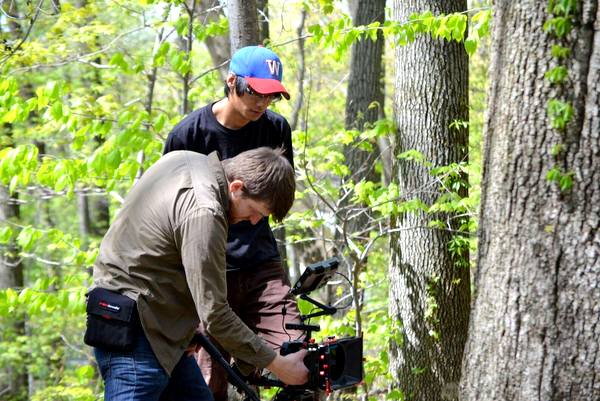
It’s really important to build a working relationship with actor’s managers and agents. Currently I am building a rapport with Henri’s manager, Bonnie Liedtke at Principato Young Entertainment. Liedtke knows I want to develop a Scorsese/DiCaprio relationship with Henri. Also I am getting closer to collaborate with Gabe Bateman on something quite special. And have been building a rapport with Bateman’s manager, Becky Poliakoff at HG5 Entertainment. Its really great to have them know who you are and fully understand what you’re set out to make with their clients and build the trust factor with the actors.
Q: When you are offered a project, what things do you put in place to deliver a good job?
Mark Schoonmaker: At the current time, I’ve only worked on personal short films I’ve created and feature films I’ve developed with my producing partners: James Redden, and Phillip Michael Ramos at Swanke Films, LLC (pronounced “Swank”). And my other partners: Christopher Glakas, and Maureen McDermitt, who help develop projects as well. With any project I really consider if I can be of service to that narrative which is not my own.
And from the development stage I find the perfect producer to help bring that project into fruition and into production. Depending on the material, if its someone else’s material at this stage of my career I’d rather be on the project as a producer and or screenwriter and tap a more suitable director who is intelligent, creative and could bring a certain skill set to the table which could fit the vision with that project. So in exchange I could potentially learn from a more experienced director and or the experience itself.
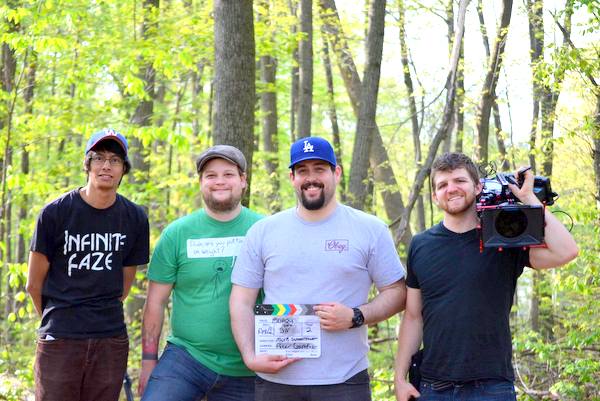
Q: Briefly describe your latest work?
Mark Schoonmaker: My work is constantly improving, changing, and evolving. I collaborate frequently with cinematographer, Peter Garafalo. I was fortunate to have met Garafalo in college. I served as an Associate Producer on one of his school projects in 2013 and we became fast friends. I would always show him what I was creating when I was student. So bringing him on board my short film projects made a lot of sense, because he already knew how I operated and fully understood my creative vision.
Garafalo collaborated with me on shorts: “Mordy” starring Chase Bolnick & Giovanna Cappetta (Street (2015)), and “Gridlock” starring Steve Wilcox (The Liberator (2013), American Me (1992)) & Stefan Rollins (Powers the series (2015), Spaceman (2016)). “Gridlock” is a noir mystery crime drama about a paranoid individual, Floyd Tanager, who seeks a man known as “The Sphinx” who is responsible for the death of his younger brother. Floyd embarks on a journey to seek revenge and redemption.
I had the pleasure of filming “Gridlock” on a Black Magic Ursa EF camera, and shot the project with natural lighting. We also struggled with certain technical challenges such as filming in severe cold weather and in endless freezing rain. “Mordy” is a drama mystery thriller about an emotionally damaged teen, who struggles to deal with a secret he can not tell anyone. For “Mordy” its a look at a 14 year old serial killer, and viewing the character as a tragic movie monster.
The short will delve into heavy themes of isolation, trust, fear, communication, and friendship. I can’t really say at this particular stage of my career that I have a certain visual style. As a storyteller I am still discovering my own voice for stories I want to tell. My approach is I am not trying to reinvent the wheel but I always want to come at it with a fresh perspective which can ultimately stand on its own and can be distinguishable from work made by other filmmakers.
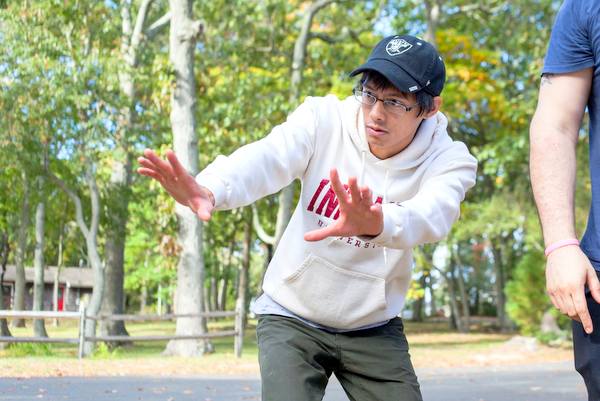
Q: What project are working on next?
Mark Schoonmaker: I’m developing a ‘90s period drama feature film titled “Castlemont” about the important bond between mother and son during certain tragedy, and how a widowed parent must rekindle a broken relationship with their 12 year old son. “Castlemont” is a passion project, and features a story which I’ve kept close to the heart.
I’m also developing a crime drama thriller feature titled “Drifters” which will be a silent bank heist film. Keri Ann Kimball of K-Star PR & Kimball Entertainment has been extremely supportive of my endeavors. Kimball got my team and I in touch with a filmmaking duo who have previously worked in the make-up & visual effects department on films such as Predators (2010), No Country For Old Men (2007), and TV series, The Walking Dead (2010), who I’ll develop the “Drifters” project with.
Other projects I am developing is a supernatural TV pilot titled “Hindrance,” and an action adventure drama feature titled “Quay” which presents a very unique challenge because I am creating the story and characters for “Quay” based off a published short story I wrote titled “Apocalypse” in 2011. And further inspiration for story and character elements will be extracted from a series of photos screenwriter, Jon Spaihts’ (Prometheus, Doctor Strange, Passengers) captured in 2012. On the “Quay” project I’ll only serve as a writer and producer, developing it for Spaihts’ wife, actress, Johanna Watts.
Q: What thing or situation helps you during a production?
Mark Schoonmaker: Being able to communicate effectively to my team whether its people behind the camera or people in front of the camera is essential. But for me to be the best prepared as I can possibly be. So to have a shot list put together and storyboards of all major scenes is crucial. I’m still learning how to stage action better and also block scenes with actors whether its extensive dialogue or specific action scenes. So when you choose your team, pick them well, because they are there to help you and get what you need done.
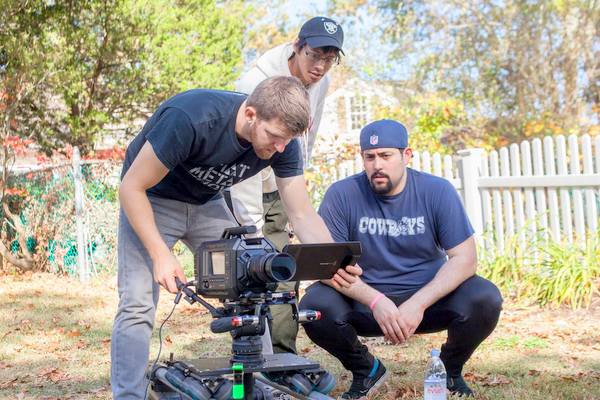
Q: Explain a creative choice you took on set during a production?
Mark Schoonmaker: When I directed my third short film titled “Gridlock“ in October 2016, the goal was to shoot a three minute short almost as if it was a small scene from a feature film and make it very concise, effective, and something that could stick with you and having an audience wanting to see more. I feel on my last short film which was a proof of concept short, I feel as a storyteller I failed on it in terms of being effective and being too large of a narrative to pack into six minutes.
It’s interesting the thing I discovered while I was in post-production on the proof of concept short, the scene I ran out of time and never shot turned out to be the only scene I wanted to shoot the whole time. The scene would have only involved one location and three principal actors. It would have been super effective. So carrying that mistake and wanting to improve on Gridlock, I only worked with two actors involving a situation about two characters which are thrusted into a conflict face to face on a beach. And as a storyteller it’s one of the strongest pieces of work, performances wise and cinematically I’ve shot so far in the short film category.
Q: How do you advise directors to find projects?
Mark Schoonmaker: I’ve never really advice filmmakers to find projects. For the people that know me well and who I’ve worked with, I’m always sending them interviews of directors or actors so they can see first hand of whomever discussing in depth what they’re process is. That continues to intrigue my own creative process and improving my craft. But if a project really speaks to you and it matters to you then go tell that story.
Q: How can filmmakers finance their films?
Mark Schoonmaker: I may not be the best person to ask, but to seek to secure financing you’ve got to pursue all and every avenue. There is no secret formula to this. There are many steps in obtaining financing. In this business, it really boils down to who you know which could possibly be a huge benefit on whether you can secure funding for a project.
And if someone tells you “No” then that shouldn’t stop you to find another way around it. You’ll get your movie made, you’ve just got to be persistent, do your due diligence, think outside the box, and be determined. It’ll be a challenging and quite overwhelming at first, but it’s the attitude you deal with it and completely having trust in the process. The key is to collaborate with serious minded people.
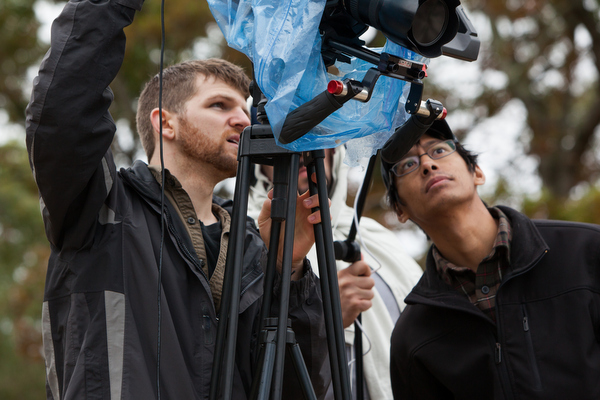
Q: What do you want from an actor during a production?
Mark Schoonmaker: I want an actor to be prepared, and when their opportunity comes I want them to deliver on it. It’ll make for some exciting days. I am always interested to help guide and bring out the best performance out of any actor I am working with. I am a very collaborative person so if I see something not working, I’ll be able to adapt and throw what I originally intended out the door and discover something in the moment.
Q: How do you prefer to work with a producer during a production?
Mark Schoonmaker: In any case, I’d really want to collaborate with a producer where they can fully comprehend what I really want to create and are willing to take that risk with me to fully support my vision from start to finish and create something challenging, bold, exciting and different every time. None of us can make it alone, so having a capable and competent producer who know what he/she is doing and are fully aware what needs to be done.
I’m interested to build a strong foundation with a producer. I also look for if a producer can help find crew members not based on who they have previously worked with but ones which best fit the needs of the project. It’ll make for a conducive work environment if a producer and director see eye-to-eye and are on the same page from the beginning. It is a team effort at the end of the day, and to have someone like that would be a great asset. I believe one of the key components working with any producer if you do not take any input from others, you are not making the best quality product.
Q: What can a director do to get into the film industry?
Mark Schoonmaker: Normally if I have an idea germinating, I get excited and when I get excited I want to seriously pursue that idea. And in any case for people who want to get into the industry start producing content, and gain experience whether its your own personal projects or applying your own skills you honed in but it’s on another gig where the project is someone else’s. There’s no better feeling where you are so committed and passionate about the craft and contributing to someone’s vision and or learning from someone else. It’s truly about the work and the valuable relationship you forge in the business which is key.
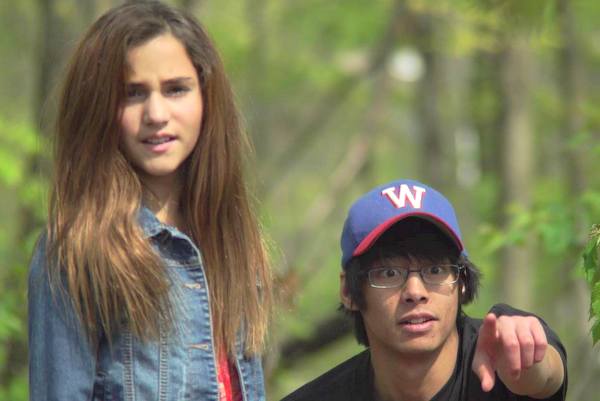
So reach out, communicate with serious and like minded people, and constantly work towards small goals in order to get to the big goal with whatever goal that is cater to whomever. Action speak louder than words. Everyone pursuing a career in the arts would have a different path of how one will get to A to B, and what one would categorize what success means to him/her. If it was easy than everyone would be doing it. If you seized an opportunity no matter what stage you are in your career go for it.
Q: Who is your favourite director?
Mark Schoonmaker: I have so many favorites in my life which have really helped me shape the way I see things as a director. One experience I’ll never forget is when I was 9 years old and saw X-Men (2000) for the first time. I was completely captivated by the visuals and the tone presented in the film. Singer was the first filmmaker I paid attention to.
Q: Why?
Mark Schoonmaker: I got introduced with a lot of his other films later in life which I adore such as The Usual Suspects (1995), and Valkyrie (2008). His attention to every detail is evident in his work. He knows what he is doing based off many years of experience. And it is clear he knows what he wants out of his team and what kind of performances he wants from his actors. I had the pleasure of talking to him once back in 2013. He was in post-production for X-Men: Days of Future Past (2014). We got to chat about J.J. Abrams, and our shared love for Star Trek: The Next Generation, and The Twilight Zone. It was a moment I’ll never forget.
Q: What advice would you give to director?
Mark Schoonmaker: The best part about writing is that you don’t need any one else. And nowadays you don’t need to rely on anyone to make your content. Yes, the financing stage is a whole other beast. But every project starts with a fantastic script, it’ll lay the ground work for whats comes next. And if you feel confident in the material to get the necessary people involved such as producers, investors, crew and cast then let the script speak for itself. Also to improve your craft if you want to write or direct, don’t just make and watch a lot of movies.
I encourage you to read as much screenplays as you can, regardless if they are great ones or bad ones. So you can see how they are made, whether they are written for Film or Television.
Q: Would you be willing to coach filmmakers and be part of a workshop?
Mark Schoonmaker: When I was in college and in my career so far I did not have a mentor. Currently I am able to come to actor, Ryan Carnes (Desperate Housewives, General Hospital). I was lucky to have met Carnes’ at a July 4th get together at Marc Cherry’s home in 2015. Carnes’ and Rich Graff (amc’s The Making of the Mob: New York) completely support my creative vision and are both heavily involved on my feature film, “Amaranth.” First-time feature length director, Michael Robertson Moore (The Sphere and the Labyrinth) which has always told me to be patient and trust the process. Moore has also given me some tidbits of his experience collaborating with actor Zak Henri.
Another first-time feature length director, Thomas Della Bella (The Remains (2016)) gave me great advice on compiling a shot list, to best prepare myself for my feature length endeavor. I’ve come to them for guidance, and support and have always received great sound advice from them. I am very grateful and appreciative to have them in my corner. I do value their relationship, and I think to best answer this question, find people in your life that you can approach to ask a question or for guidance.
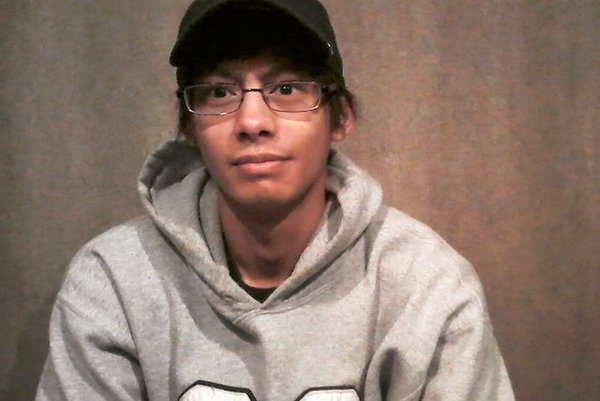
Q: Briefly describe your careers?
Mark Schoonmaker: I’ve produced, written and directed short films: “Gridlock,” and “Mordy.” I will make my feature length directorial debut with science fiction adventure drama, “Amaranth” which will be produced by Amy Soto (netflix’s 13 Reasons Why (2017)), cinemax’s Quarry (2016)), and Phillip Michael Ramos.
The latest draft will be penned by writers: Tom Huckabee (Producer of Frailty (2001)), and Gabriel Horn with Schoonmaker. The project will star an ensemble cast: Johnny Messner (The Equalizer (2014)), Steve Wilcox, Johanna Watts, Ryan Carnes, Rich Graff, and Christian Madsen (Divergent, Mr. Church (2016)) to name a few. Carnes and Graff will also serve as Associate Producers.
The project will carry a similar tones to Saving Private Ryan (1998), and Raiders of the Lost Ark (1981) about family, survival, friendship, and hope. It meant a lot to my team and I that Huckabee was brought onto my first feature film. In his career he has worked close with actor, Bill Paxton on a lot of his projects, and many of the elite: Spielberg, Cameron, Bigelow, Scorsese.
So to have someone like that who has such a wealth of knowledge spanning over 40 years will make for a great learning experience. In my career so far I discovered a spectacular editor by the name of Kenny Lee Dodson. Dodson has built working relationships with filmmakers: John Lee Hancock, and Cameron Crowe.
I’m really fortunate to have an editor collaborating with me who has had prior experience on studios films, knows what hes doing, and always challenging me. Another valuable member I discovered was composer, Lasse Elkjaer, who has built experience and has previously collaborated with composer, Jacob Groth (Dead Man Down) and frequently works with legendary composer, Christopher Young (Spider-Man 3, Hellraiser, Swordfish). Its very valuable and key to have people a part of your projects who you can learn and grow with. These are the types of people you want in your working circle.
Follow Mark Schoonmaker on social media
Website
Twitter
Facebook
IMDB
Instagram
YouTube
Vimeo
LinkedIn


